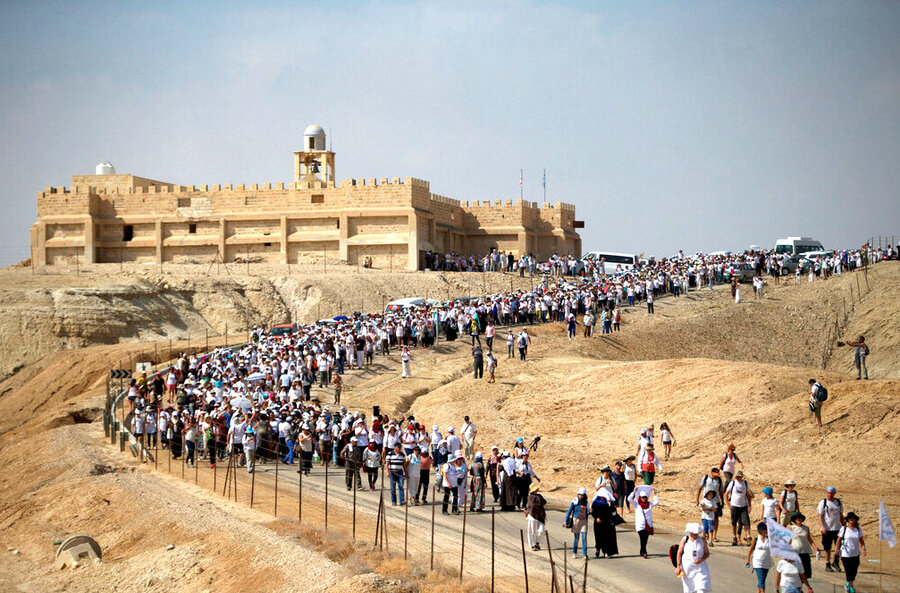Mutual goals for Israelis, Palestinians
Israel’s military operations in the Gaza Strip have raised urgent questions about what comes next if it succeeds in eradicating Hamas, the militant group that has governed the Palestinian enclave since 2006. Few see long-term Israeli administration as either viable or acceptable to the region’s Arab leaders.
The answer may lie in an alignment of Israel’s security interests with the aspirations of Palestinians for honest and democratic governance.
That shift would be the most consequential outcome of the current conflict – and it has arguably already happened. The deadly Oct. 7 assault by Hamas on Israeli villages adjacent to Gaza undermined Israeli assumptions that the country’s safety depended on keeping Palestinian leadership divided and off balance.
“This entire strategy has one goal,” Noa Shusterman Dvir, an Israeli national security consultant, told The New York Times. “Weakening the Palestinian Authority and strengthening Hamas is designed to hinder peace efforts, to prevent the establishment of a Palestinian State.” Now, she said, “the concept of ‘managing the conflict’ is broken.”
Gaza and the Palestinian territories in the West Bank have been under divided leadership for nearly two decades. Attempts to reconcile and unify the separate governing factions have repeatedly failed. The last Palestinian elections were held in 2006. Since then, Palestinians have become increasingly discontent over corruption and lack of economic opportunity.
Those frustrations have erupted repeatedly before and since the Hamas attacks – particularly in the West Bank. Palestinians blame the Palestinian Authority, their main governing body, of failing to protect them, especially as attacks by Israeli settlers on Palestinians have increased in the West Bank.
A September report by the Palestinian Center for Policy and Survey Research found that Palestinians attribute their declining trust in their leaders to their financial dependency on Israel. That has exacerbated other grievances. The center also found that Palestinians strongly admired the mass demonstrations by Israelis against their government’s attempts to weaken judicial independence.
Those attitudes point to common cause. Israeli and Palestinian civil society groups agree there is a basis for unity in shared values. Prior to the crisis over Gaza, the two societies were involved in separate, parallel struggles to preserve or restore their respective democracies. Yet they also have two common aims: to ensure judicial independence and uproot corruption. Increasingly, people on both sides see those movements not so much as parallel but as intertwined.
As Shir Nosatzki, an Israeli activist, noted late last month, if the Israeli “protest movement builds a new agenda while Arab society is not sitting at the table, we won’t be able to call whatever it is we are building ‘democracy.’ I do think that the fact that Israeli Jews are starting to talk about what democracy is, has to bring us towards the fact that we are occupying another [people’s land].”
The hostilities in Gaza have deepened a crisis of confidence among Israelis and Palestinians in their leaders. They may be seeing similar paths toward restoring that trust.





